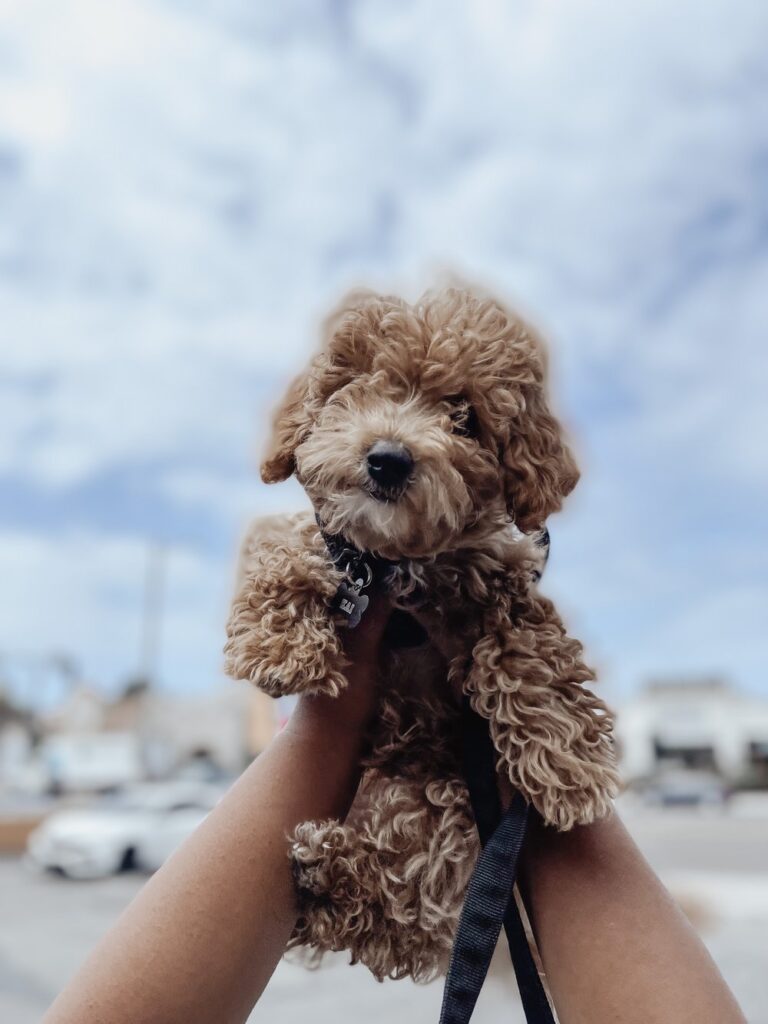Dogs are incredible animals. They can sense your feelings, they understand you and they know when you’re upset or angry. Can dogs sense if you hate them?
Dogs have been domesticated for thousands of years and this has resulted in changes to their gene pool. This means that they are incredibly good at reading our emotions, which is why they seem to know exactly when we’re annoyed with them.
They can even tell the difference between someone who is simply annoyed and someone who hates them!
Can Dogs Sense If You Hate Them?
It’s been well documented that dogs can sense your moods, but it’s not just about being able to read our facial expressions or body language as many people believe. Dogs are actually able to sense our feelings on a much deeper level than this. They are able to detect subtle changes in our body chemistry that occur when we’re stressed or anxious, which helps them determine whether or not we like them at any given moment!
Studies have shown that dogs are better at reading human emotions than even chimpanzees or bonobos (our closest living relatives), so it should come as no surprise that they can tell if you hate them just by reading your body language and facial expressions!
What to do when you don’t like having a dog?
If you’re thinking about getting a dog, but don’t like the idea of having to take care of one, here are some things to consider.
The first thing you should do is make sure you’re ready for a dog. A lot of people get dogs because they think they’ll be cool and fun, only to find out that they’re actually a lot of work. If you want a dog, then try volunteering at an animal shelter or rescue group first. You’ll get to interact with dogs and learn more about them before making the commitment.
If you still want a dog after volunteering for a while, then you might have found your match!
When it comes time for choosing a breed, think about what kind of personality would fit in well with your family’s lifestyle. For example, if you’re busy all day long with work or school and never have time for walks or playtime outside your home, then maybe getting an energetic breed wouldn’t be ideal for your situation. But if everyone has plenty of time on their hands during the weekdays and weekends, then having an energetic dog like a Border Collie or Jack Russell Terrier could be good option since they need lots of exercise each day to stay happy and healthy.
How do you know when it’s time to get rid of a dog?
If you’re thinking about getting rid of a dog, you should know that there are many different reasons why people end up getting rid of their dogs. The most common reason is because the dog has become too much for them.
Not being able to control the dog, having no time to spend with the dog, or having too many other responsibilities can all lead to a situation where you might want to give up your dog.
In this article we’ll talk about some of the signs that it’s time to get rid of your dog, as well as some tips on how to make sure that you can find it another home if needed.
How Do You Know When It’s Time To Get Rid of A Dog?
There are many different reasons why people end up getting rid of their dogs:
The dog is too much for them (or vice versa). If you have other responsibilities like work or school then it’s possible that your dog might not fit into your lifestyle anymore. Many people end up finding themselves in this situation as they get older and have less free time than they used to have when they were younger. The best way to avoid this situation is by making sure that your new puppy fits into your lifestyle from the very beginning so that it doesn’t become
Do you regret getting a dog?

Do you regret getting a dog?
It’s not uncommon for people to get a pet and later regret it. A survey by the American Society for the Prevention of Cruelty to Animals found that about one-third of pet owners have had a bad experience with their pet that led them to consider giving up their animal or even abandoning it at a shelter.
But how often does this happen? And what are some of the most common reasons people say they regret their pets?
Here’s what I found on Google when I searched “I regret getting a dog”…
1) “I wish I had done more research before getting my dog.” This is probably one of the top reasons why people say they regret getting a dog. Some people just don’t know what they’re getting themselves into when they decide to adopt a new puppy or kitten. They don’t realize how much time, effort and money it takes to care for an animal until after they bring it home.
2) “My dog barks too much.” So many people complain about this! Dogs bark for all sorts of reasons — sometimes because they’re bored or scared, but sometimes because they’re just being playful or excited about something. It can be frustrating when your pup barks all night long (or
What to do if you regret buying a dog?

If you’ve bought a dog and now regret it, there’s no need to panic. We’ve got five ways for you to make amends and help your new friend settle into their new home.
- Be patient
Dogs are creatures of habit and can take time to adapt to new surroundings. Take things slowly, give them space and let them get used to their new environment. Don’t force them into situations they’re not ready for.
- Get them involved
Dogs love being part of the family so why not include them in as many activities as possible? If they’re enjoying themselves, they’ll be less likely to feel anxious or stressed during the adjustment period.
- Introduce them to other dogs and people
This isn’t just about having other dogs around – it’s also about making sure they don’t become overly attached to just one person in the household (usually the owner). If they start behaving aggressively towards someone else in the house, then there may be more going on than meets the eye!
- Try some training!
Dogs are often more responsive when learning new tricks at home rather than at a kennel or training school – after all, this is where they spend most of their time! Learning how
How long does puppy regret last?
Puppy regret is a phrase that refers to the feeling of grief and sadness that many new puppy owners feel when they realize that their cute little puppy has grown up into an adult dog who doesn’t want to do what you want it to do.
Puppy regret is a common experience for new dog owners, but it’s not something that lasts forever. It’s best to try and work through your puppy regrets as soon as possible, so that you can move on to enjoying the rest of your relationship with your canine companion.
How long does puppy regret last?
The length of time that puppy regret lasts depends on several factors. The first is how long ago you adopted your dog. If your dog was adopted as an adult, then there may be less puppy regret involved than if you adopted a young puppy and are now seeing him or her grow up all over again (which can be difficult for some people).
Another factor is how much training you’ve already done with your dog — the more training you’ve done, the better prepared you’ll be for dealing with any issues that come up later on in life. If you haven’t done much training yet and are just getting started, then this could be a source of additional frustration when things don’t go exactly as planned
What is the hardest puppy stage?

The hardest puppy stage is…the first week.
The first week of having a new puppy is always the most difficult, simply because you’re getting used to each other and figuring out how to get along. But it’s also the time when your puppy is most impressionable, so if you can make it through this period without too much drama, you’ll have a much easier time in the future.
The first week is also the best time to start training your puppy, because she’s still young enough that she’ll be able to learn quickly, but old enough that she has some experience with walking on a leash and coming when called. If you wait until later in your puppy’s life, you’ll have more work to do and less time before her personality starts taking shape.
Here are some tips for making it through that first week:
Be patient with yourself and your puppy. Don’t expect too much too soon; just focus on teaching one thing at a time and being consistent about reinforcing those behaviors with praise or treats (clicker training works well). Your puppy will probably sleep a lot during this period — up to 18 hours per day — so don’t worry if she seems tired; she needs all that rest!
At what age do puppies get easier?
At what age do puppies get easier?
Puppies are adorable, but they can be more work than you bargained for. They’re full of energy and need constant supervision, training and entertainment. Puppyhood only lasts a few months, though, so here’s hoping that it’s worth it!
How old is your puppy?
The answer will help us understand how much work you have ahead of you.
Puppies are cute little bundles of energy who will consume your life if you let them. But there are ways to make life with a puppy easier. The key is to set up a routine early on so the dog can adapt to it as quickly as possible. Routine helps dogs learn what’s expected of them and helps owners feel more confident about their roles in their new lives with pets.
It’s also important to teach puppies early that they must stay off furniture or other areas where they aren’t allowed; otherwise, it’ll take longer for them to learn these rules later on!
Is raising a puppy harder than a baby?
Raising a puppy is a lot like raising a baby. They both require lots of love, attention and patience — but puppies also need training.
If you’re considering adopting a puppy, there are some things you should know about how to raise them properly. Here are some tips for getting started:
Pick the right breed. Some breeds are easier to train than others. If you’re looking for a dog that’s easygoing and obedient, look for breeds such as retrievers or collies. If you want something more energetic, consider terriers or sporting dogs like retrievers and spaniels.
Choose the right age. Puppies have different needs at different ages — so it’s important to choose the right one for you and your family. If you don’t have children or other pets yet, an older puppy may be better suited to your lifestyle than an adolescent one that still needs parental guidance every day of its life.
Buy all the supplies first. Puppies need plenty of toys and chew bones to keep them entertained while they’re teething; they also need food bowls, dishes and water bowls — all of which can be expensive if you buy them piecemeal over time instead of getting them all at once from one source (which is what most people do
